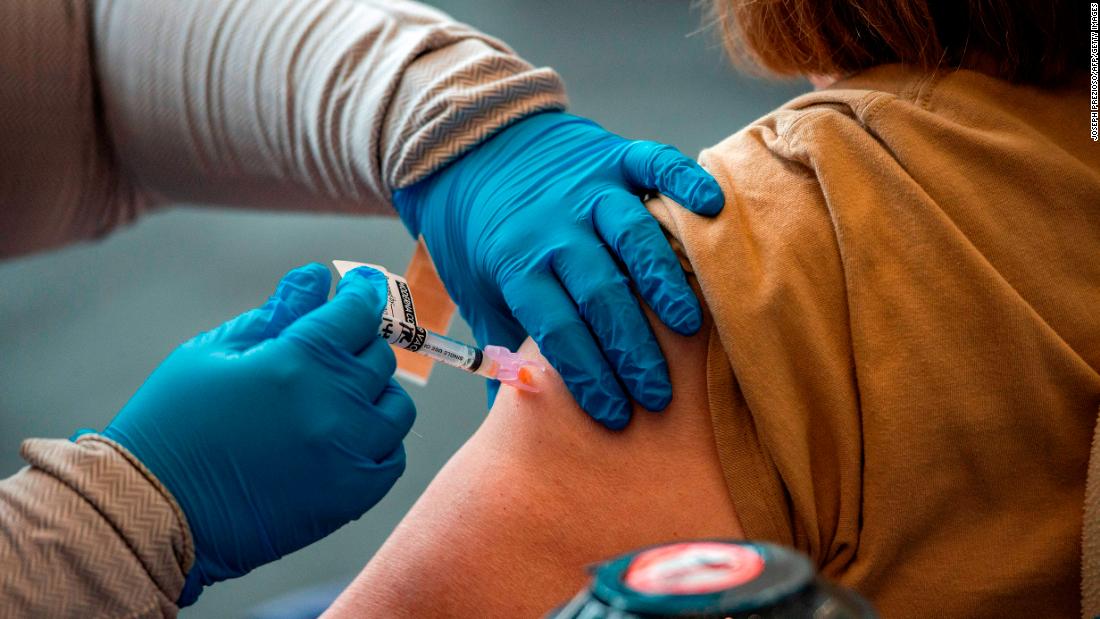When given the option of getting the vaccine immediately or at a later date, 50% of Americans say they’ll get it as soon as it’s available compared to at a later date. That too is the highest percentage ever recorded by Ipsos.
What’s the point: No one would blame you for being in a depressed state about the coronavirus. More than 450,000 overall
have died from Covid-19, including about 100,000 in
the last month alone. There have been more than 25 million cases of Covid-19 in America, and an untold number of lives and businesses turned upside down.
There is, however, at least some cause for optimism. The number of people getting the coronavirus is falling, and the number of people getting vaccinated is rising and will only continue to rise as more and more vaccines are made available.
The
number of new cases of Covid-19, while still high at around 130,000 in the daily seven-day rolling average as of Friday, has been dropping rather dramatically over the last few weeks. Nationally, there has been a drop of about 30% in the rolling average over the past 14 days. You have to go back about three months to the early November to see the number of new cases this low.
The number of daily cases has fallen in pretty much every single state over the past few weeks. In most states, the decline has been considerable (as you’d expect given what we’re seeing nationally).
More importantly, the number of people hospitalized has also declined. It’s down more than 20% over the past few weeks.
Hospitalizations being down is key because more hospitalizations are usually followed by more deaths.
Right now, deaths are still way too high and have not fallen anywhere near as dramatically, but if past trends are followed they will eventually.
The fact that cases are down more than hospitalizations could mean that hospitalizations could drop even further.
Of course, current trends don’t necessarily translate to future trends in cases.
For now, though, the number of people getting vaccinated every day
is easily surpassing the number of new cases each day.
I noted a few weeks ago that President Joe Biden’s goal of giving 100 million doses in 100 days
was too modest. The statistics have, so far, proven that to be true.
The daily average of new vaccines given to people is well north of 1.2 million since Biden took office.
We want that number to go up. With a 2-shot regimen necessary for the Pfizer and Moderna vaccines, 1.2 million vaccines a day simply won’t get us back to normal any time soon. There are more than 255 million adults
in this country.
The good news is that last week it was announced that there would be a weekly 16% increase in the
number of vaccines made available to the states.
This increase is likely to only climb higher in the next two months. Remember,
Pfizer and
Moderna are due to deliver
220 million doses combined by the end of March. Much of that is expected to be sent toward the end of March,
according to Andy Slavitt, a White House adviser on the Covid-19 response.
And from there, the number of doses should only climb higher, with Pfizer saying it will get the US a total of 200 million doses by the end of May and Moderna saying it is on track for 200 million by the
end of June.
Biden has announced that the US
has ordered another 200 million doses combined of Pfizer and Moderna’s vaccines that should be delivered by the end of summer.
Additionally, Johnson and Johnson has requested emergency authorization for its one-dose vaccine from the FDA, and has said they will have 100 million doses
available by the end of June.
All told, there should be enough vaccines for 300 million people by the end of June, if Johnson and Johnson receives emergency authorization. Otherwise, it will be the end of summer until we have vaccines (600 million from Pfizer and Moderna) to cover
300 million people, enough to cover all Americans 18 years and older.
If the vaccines are out there, then the challenge becomes getting the vaccine into the arms of Americans. As judged by the rate of vaccines administered to those available, we’re doing a much better job of that
now than ever before.
And while there are
still unfortunate racial disparities in who is willing to take it (i.e. Black and Hispanic people continue to lag behind), the number of people overall willing to take it continues to climb in the polling data.
There is a light at the end of the long dark tunnel. We won’t get there for a while, but there is reason to believe we will get there.
![]()


